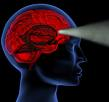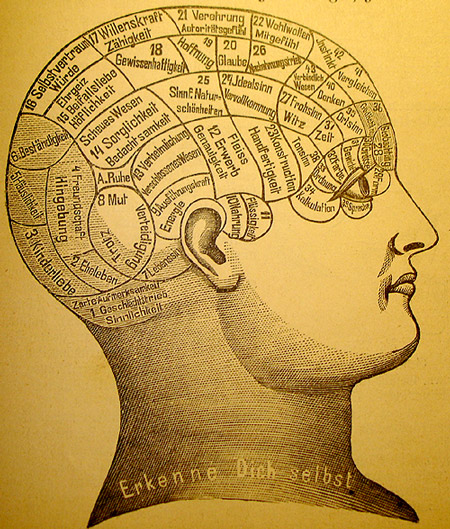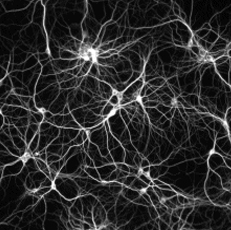|
|
|
|
Activities
|
Model-based Self-Awareness for Autonomy |

|

|
|
Written by Ricardo Sanz
|
|
Friday, 17 October 2008 |
|
An ASLab Research Seminar
Model-based Self-Awareness for Autonomy
Engineering Functional Self-Management
Carlos Hernández
Place: Aula Artigas, ETSII-UPM
Time: October 21, 2011 / 12:30-13:30
For systems to operate autonomously, their controllers have to cope with pervasive uncertainty: events in the dynamics of the plant that were unknown at design time. Classical control techniques work well when there are quantitative models of this uncertainty that can be used at design time. But we are now demanding control systems to operate with increasing qualitative uncertainty. Biological cognitive processes have provided useful inspiration to design controllers for that, although techniques are typically very dependent on the domain.

|
Notwithstanding, this comes at the cost of increasing the complexity of the controller: it is usually implemented as a set of components interacting to realise a set of functions designed at engineering time to address the objectives of the system. Unexpected events in the dynamics of the control system itself are thus a real threat for its success. These deviations from the expected behaviour of the controller may be due to signals arising in the plant, but their origin can also be a malfunction in the control system itself. Different methodologies have been proposed to address this problem (adaptative control, fault-tolerant control, autonomic computing), but they still do not provide a general solution to the problem. Therefore, engineers still play a role managing control systems when the unexpected occurs, redesigning on the fly the control system or the plant to cope with that.
|
Efficiency and autonomy demand moving this responsibility to the control system itself, making it fully autonomous. We have turned again towards the biological for inspiration, to find that consciousness, or self-awareness, can be related to the management of the cognitive processes taking place in our minds (the controllers for our bodies). It involves introspection and second-order representations, associated to the modelling, not only of the external world, but of the mental processes as well. Self-awareness could then work as an operative system supporting the cognitive processes, orchestrating their operation to make it more efficient and adaptive.
We propose an approach to engineer some of these capabilities by designing a control system that exploits a functional model of itself at runtime, so it can perform self-reconfiguration and hence cope with not pre-specified deviations from its objectives, independently of its origin (fault in the controller, unexpected in the environment...), as long as the necessary functions are available for implementation.
Find more about Carlos Hernández.
|
|
Last Updated ( Thursday, 13 October 2011 )
|
|
|
Aspects of Mind |

|

|
|
Written by Ricardo Sanz
|
|
Tuesday, 26 February 2008 |
|
Minds and Machines: Aspects of Mind

|
Raptured by the mystery of mind?
Mind collectively refers to the aspects of intellect and consciousness manifested as combinations of thought, perception, action, memory, emotion, will and imagination; mind is also seen as the elusive stream of consciousness.
This is the first session of ASLab's Autonomy Spring Seminar for 2008.
Get the Autonomy Spring 2008 Seminar brochure.
|
Find details and enroll at Minds and Machines the ASLab Courseware site.
|
|
Last Updated ( Thursday, 28 February 2008 )
|
|
Read more...
|
|
|
Mental Life |

|

|
|
Written by Ricardo Sanz
|
|
Tuesday, 26 February 2008 |
|
Mental Life

|
"Philosophy in the flesh" was the term used by Lakoff & Johnson to refer to the embodied approach to cognitive science.
Xabier Barandiarán will present his own approach to the same problem focusing of the emegence of complex autopoietic networks of "habits".
|
|
|
Last Updated ( Saturday, 07 June 2008 )
|
|
Read more...
|
|
|
Dimensionality reduction and Neural Nets |

|

|
|
Written by Ricardo Sanz
|
|
Tuesday, 26 February 2008 |
|
Dimensionality reduction and Neural Nets
Pascual Campoy
Place: Automatica Seminar Room
Time: September 19 , 2008 / 12:00-13:00

|
Is any combination of pixel intensities an image of our daily world? The answer is no,
there is a huge amount of bizarre synthetic images that we would never expect to see that,
if synthetically produced, are quite imposible to be represented by words, i.e. they are
not susceptible of a higher representation according to previously seen images. In other
words, it can be concluded that all the images we daily see lie in a manifold embedded
in the mxn (amount of pixels) dimensional input space. This fact yields to the possibil-
ity of representing an image by a reduced number of data that determines its position on
the manifold, which by the way is the operation our brain does and we formulate by words.
Dimensionality Reduction is a key issue in many scientific problems, in which data is
originally given by high dimensional vectors, all of which lie however over a fewer
dimensional manifold. Therefore, they can be represented by a reduced number of
values that parametrize their position over the mentioned non-linear manifold.
This dimensionality reduction is essential not only for representing and managing data,
but also for its understanding at a high interpretation level, similar to the way it is
performed by the mammal cortex.
This conference presents a brief introduction to the problem of Dimensionality Reduction,
its state of the art, and its solution by techniques based in Neural Networks, both supervised
and not supervised, with special emphasis in Self-organizing Maps (SOM). Finally the
conference gives an overview of new learning algorithms for unsupervised self-organizing
maps developed at the Computer Vision Group at the Universidad Politécnica Madrid.
|
|
|
Last Updated ( Wednesday, 10 June 2009 )
|
|
|
Machine Understanding of Space |

|

|
|
Written by Ricardo Sanz
|
|
Tuesday, 06 March 2007 |
|
Philosophy of space and time is the branch of philosophy concerned with the issues surrounding the ontology, epistemology, and character of space and time. Obvious.
What may not be so obvious is what is the proper engineering approach to space when dealing with the construction of space-time dwelling machines.
Agenda:
10:00-12:00 Sesion 1:
Espacios Interiores. Sensores y filtros. Entornos de pasillos, puertas y habitaciones.
Ponente: Juan Escasany.
12:15-13:30 Sesion 2:
Grafos.
Ponente: Juan Escasany.
15:30-16:15 Sesion 3:
Formaciones de Robots.
Ponente: Iñaki Navarro.
Conceptos Espaciales en Tuberías.
Ponente: Alberto Brunete.
Venue
Place: Aula Artigas
Time: 1o:00
|
|
Last Updated ( Sunday, 27 May 2007 )
|
|
| | << Start < Prev 1 2 3 Next > End >>
| | Results 10 - 18 of 27 |
|
|

|
